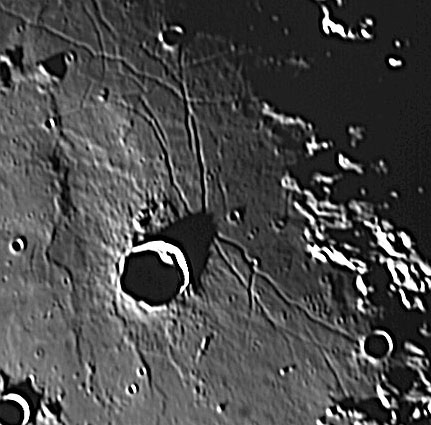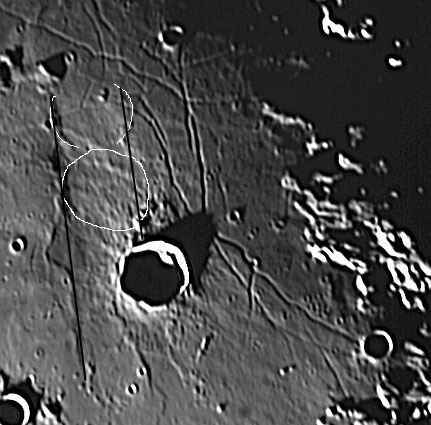Difference between revisions of "July 25, 2004"
| (3 intermediate revisions by the same user not shown) | |||
| Line 1: | Line 1: | ||
__NOTOC__ | __NOTOC__ | ||
=Pre-History of the Triesnecker Area= | =Pre-History of the Triesnecker Area= | ||
| + | <!-- Start of content --> | ||
<br> | <br> | ||
<table width="85%" border="0" align="center" cellpadding="6" cellspacing="2"> | <table width="85%" border="0" align="center" cellpadding="6" cellspacing="2"> | ||
| Line 29: | Line 30: | ||
<p class="story"><b>Related Links:</b> <br> | <p class="story"><b>Related Links:</b> <br> | ||
[http://www.lpi.usra.edu/research/cla/info/diii/ Consolidated Lunar Atlas High Sun View] <br> | [http://www.lpi.usra.edu/research/cla/info/diii/ Consolidated Lunar Atlas High Sun View] <br> | ||
| − | [ | + | [http://www.lpi.usra.edu/research/lunar_orbiter/images/img/iv_102_h1.jpg Lunar Orbiter IV View] </p> |
| − | <p | + | <p><b>Yesterday's LPOD:</b> [[July 24, 2004|An Excess of Craters]] </p> |
| + | <p><b>Tomorrow's LPOD:</b> [[July 26, 2004|Two Satellites]] </p> | ||
</tr> | </tr> | ||
</table> | </table> | ||
| Line 51: | Line 53: | ||
</table> | </table> | ||
<p> </p> | <p> </p> | ||
| − | + | <!-- End of content --> | |
| − | + | {{wiki/ArticleFooter}} | |
| − | |||
| − | |||
| − | <!-- | ||
| − | |||
| − | |||
| − | |||
| − | |||
| − | |||
| − | |||
| − | |||
Latest revision as of 21:42, 8 February 2015
Pre-History of the Triesnecker Area
Image Credit: Jim Philips |
|
Pre-History of the Triesnecker Area The Triesnecker area is a magnet for observers - not because of the 26 km wide fresh crater, but for the nexus of mostly linear, thin rilles east and north of the crater. This low sun view (compare with the somewhat higher, sunrise image from LPOD for May 26, 2004) shows considerable relief for the shallow, older(?) rilles east of the main ones. This image also reveals low relief features buried by the smooth plains that are cut by the rilles. West of Triesnecker there appears to be a linear depression or graben about 100 km long - see black lines on mouseover. Large graben are unusual on the Moon, and since this one is not radial to the Imbrium basin (which controls most of the linear structures in this area), other explanations should be considered. Possibly the depression results from two older craters (white circles), each about 30-35 km wide. Whether this feature is a graben or craters, one thing is for sure - it is submerged by the smooth plains. What are these plains? If you observe this area near full Moon, you'll see that some parts of the plains are dark, like mare lavas, and other places are light-hued. Some of the lightness is from the strange Triesnecker rays, but other parts may be non-mare materials - the so-called Cayley Plains. More on this later. Technical Details: Related Links: Yesterday's LPOD: An Excess of Craters Tomorrow's LPOD: Two Satellites |
Author & Editor: |
COMMENTS?
Register, Log in, and join in the comments.





